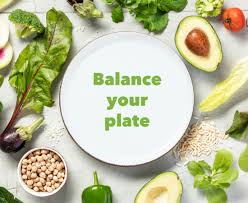
Good nutrition is essential to overall health and well-being. Whether you’re looking to manage a health condition, boost your energy levels, or simply improve your quality of life, making healthy dietary is one of the most important steps you can take. At Megalife Hospital, we understand that proper can make a significant difference in preventing disease, managing chronic conditions, and achieving health. Here we’ll share some practical diet and nutrition tips that can help you maintain a balanced diet, improve your health, and feel your best every day.
Eating a wide range of foods ensures that your body gets the necessary nutrients it needs to function properly. Aim to include a balance of the following in your diet:
Overeating, even with healthy foods, can contribute to weight gain and other health problems. Portion control is important for maintaining a balanced diet and keeping your calorie intake in check.
Water is essential for the prop
er functioning of the body. Staying hydrated helps with digestion, keeps your skin healthy, and aids in the transportation of nutrients.
Processed foods, sugary snacks, and drinks often contain unhealthy fats, added sugars, and high levels of sodium. These can contribute to obesity, diabetes, and heart disease over time.
Fiber is important for digestive health, weight management, and heart health. It helps prevent constipation, keeps you feeling full longer, and helps regulate blood sugar levels.
Not all fats are created equal.
While saturated and trans fats (often found in processed snacks, fried foods, and fatty cuts of meat) can increase your risk of heart disease, healthy fats are beneficial for overall health.
High sodium intake can contribute to high blood pressure and increase the risk of heart disease. The majority of the salt we consume comes from processed and packaged foods, rather than from the salt shaker.
A balanced meal includes a combination of proteins, healthy fats, whole grains, and plenty of fruits and vegetables. When planning your meals, aim for:
Practicing mindful eating can help you enjoy your food, recognize hunger and fullness cues, and prevent overeating.
Certain health conditions require specific dietary modifications. If you have conditions like diabetes, heart disease, or food allergies, it’s essential to tailor your diet to meet your needs.
Eating a healthy, balanced diet is one of the most effective ways to take care of your body and prevent a wide range of health problems. By focusing on whole, nutrient-dense foods, controlling portions, and making mindful choices, you can improve your energy levels, manage your weight, and reduce your risk of chronic diseases.
At Megalife Hospital, we understand that dietary changes can be challenging, but we are here to support you. Our dietitians and nutrition experts can help create personalized meal plans and offer guidance to help you achieve your health goals. If you’re ready to make positive changes to your diet, reach out today to schedule a consultation with one of our specialists.